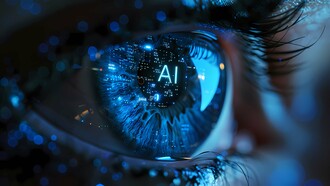For a moment, I want to talk with the 26-year-old man I was in 2000. I have so much to tell this guy! For the moment, I’ll leave our personal lives behind. I’ll focus on living in the “developed” world that we helped to engineer.
Honestly, if I met Young Miguel today, an average, middle-class man with a Catholic education, traditional belief systems, traditional career and life aspirations, I would be tempted to mock his naïve, idealistic dreams and his unhealthy, unsustainable habits. My temptation to condescend makes me realize that a person’s intrinsic worth is not defined by beliefs, habits or deeds. My values and beliefs evolve and can even be erased—as long as I question my thinking.
Dear Young Miguel,
I need you to know what’s happening in 2021. I won’t bother aiming for diplomacy or subtleness. I’ll get straight to the point, starting with childhood influences that forged your beliefs. Click the links for a selection of short videos.
As a boy in the 1970’s and early 1980’s, toys and cartoons gave you fascination for science and technology. Toy robots filled your play room. Giant, powerful robots in the Japanese anime series Grendizer (Goldorak in French) hypnotized you. Captain Future, his robot-friends and Yuji Ohno’s stunning jazz-funk soundtrack mesmerized you. I will always dance to the catchy credits music by Jean-Jacques Debout in the French version. I still think about Star Wars’ robots saving their human companions. I still think about San Ku Kaï, Captain Harlock 78 (Albator 78), Ulysse 31...
TV shows taught you to accept the presence of robots. They gave you transhumanism, the idea that technology can improve human beings. In the anime Space Cobra (whose best friend is a female humanoid robot), the hero is half-man and half-machine with a laser ‘psycho-gun’ in his left arm. Captain Future’s mentor, Prof. Simon, is actually a brain transported by a flying drone! In Star Wars, Darth Vader’s machiavellian brain also received a new body, with a darker voice. Even clumsy Inspector Gadget is not the most natural character!
As I write, transhumanism has left the realm of fiction and stepped into real-world experiments. Medical doctors, entrepreneurs, politicians, philosophers and engineers see a future in transhumanism. In the BBC/HBO TV series Years and Years, a perfectly normal teenage girl who does not like her body wants to live forever as data in the cloud. Neuralink, Elon Musk’s company, is developing a brain chip interface aimed at connecting the human with a ‘digital self.’
Miguel, as a child, you were drawn to space conquest. But can you imagine that in 2020, SpaceX, Elon Musk’s private aeronautics company, actually plans to colonize Mars? How will you, a telecommunications engineer, reconcile that SpaceX (and other privately-owned companies) will saturate the sky over our heads with more than 60,000 satellites in order to create a mobile phone network? Do you think we should evaluate these satellites’ impacts on astronomers and the Earth’s natural electromagnetic fields bathing all life on earth? Should we consider that they can obstruct the detection of asteroids that could collide with the Earth? What will we do about debris from these networks? Have you considered that this debris could prevent further launches of scientific space missions? Take note: we now have fast mobile networks on Earth. Most of us have budget issues; and these new satellites cost billions. Beware, young man: politics are not able to regulate or temper these actual space invaders.
Without your conscious awareness, Artificial Intelligence (AI) directed your imagination as a child and teenager. Sci-fi movies made you trust in AI’s potential to create a better world. In 1977, when you turned four, Star Wars’ adorable R2D2 saved the day over and over again. But consider 1979’s ‘Alien.’ In that film, only an undercover humanoid robot and ‘Mother,’ the spaceship’s computer, knew the mission’s purpose. Both of them considered the crew expendable. And remember Skynet, the AI that took over the military power and built Terminator-killing robots? This led to ‘Judgement Day,’ a global war between machines and humans.
Back in 2021, in reality, AI operates robots, drones and self-driving vehicles. It has started to replace humans in medicine, mining, teaching, transportation, customer service and much more. Astronauts can use Cimon, a flying AI advisor, named after your dear Captain Future’s flying brain mentor. AI could soon become much smarter than human beings, a moment named Singularity. Ray Kurzweil, Google’s director of engineering is known for his accurate predictions and sees it in 2029. Prof. Stephen Hawking said: “AI could spell the end of the human race”. Even Elon Musk believes that human being must control and contain AI, which he considers “far more dangerous than nuclear weapons.”
You first envisioned relieving humankind from dull and arduous work as a teenager. So let me ask: exactly when should machines replace humans? When is this a bad idea? You believe that technology can bring true progress with no financial losses, psychological support, dignified activities that replace work—all with zero footprints from cradle-to-cradle. Dear young man, our current society cannot meet any of these conditions. As long as corporations’ interests are put before citizens’ or the planet’s future, policies will not support sustainability or human needs.
Two decades ago, you became a telecommunications engineer and took your first job. You could not have imagined that I would now believe in regulated, sustainable use of technology. Like other engineers, you were trained to think that technologies are tested and proven safe before they are marketed. You were never exposed to technology’s impacts on health, biodiversity, climate and life itself. Becoming an engineer gave you dangerously incomplete knowledge of technology’s hazards. Your education in electrical engineering only covered risks of electrocution, fire, ionizing (e.g. nuclear) radiation, and non-ionizing electromagnetic radiation (EMR)’s thermal effects. No one showed you the thousands of scientific studies about EMR’s non-thermal effects on living creatures. No one discussed the extractions smelting, child labour, worker deaths, wars, habitat losses or terrible health problems that result in order to manufacture, operate and discard our electronic devices.
No professor suggested that you read Limits to Growth, the 1972 report from MIT, which warned about the Earth’s limited non-renewable resources and the inevitable degrowth in production we must now face. Degrowth is not a belief or political orientation. It’s a mathematical fact. The only controversy around degrowth should be when it will begin. I wish you and other engineers had learned these facts. I wonder if they would have helped us create a sustainable world. But even today, few engineers are trained to know—let alone care about—the ecological consequences of the machines, processes, products, services and algorithms that we engineer. In telecommunications, environmental issues are secondary. Deploying and developing 5G, 6G and all wireless trends show that we have not learned lessons from tobacco or other industries.
Now, I keep noticing that agricultural, food, plastics, pharmaceutical and telecommunications industries all market potentially hazardous products. Regional, national and international regulatory agencies are supposed to protect the population. But they rarely do. The European Environment Agency reported that the vast majority of whistle blowers’ early warnings were not considered until health or environmental scandals had already occurred. This 2013 report claimed only four “false positive” warnings among 88 warnings raised since 1970.
Look, I know you trust mainstream media. But you have no concept yet of social media. You don’t know how quickly they can spread true and fake information, or how increasing censorship prevents sane, public debates. Follow the money: the same people control the media, regulations and even laws. Look at the big pictures. Listen to censored voices, to stories on non-mainstream media. Then make your own opinion, always leaving room to reconsider your thinking.
The more I learn, the more I realize how many beliefs I have to reconsider. l know now that what I think can be incorrect. Be humble with your knowledge and use it wisely. Albert Einstein said: “Those who have the privilege to know have the duty to act.” But make sure your knowledge is sound and unbiased by researching and reflecting before you act.
I respect your partial knowledge of the world. Even as elders, each of us has limited knowledge of the universe. Even the sum of all scientific knowledge will always be incomplete and partially untrue. When you realize your mistakes and incorrect beliefs, have compassion for yourself. Every one of us is ignorant, naive and idealistic. We all cling to the illusion that authorities can and do protect us.
It is never too late to discover reality. You’ll need an open mind and some courage as you question your beliefs. Please, Miguel, keep your childhood high-tech dreams alive, but don’t turn them into nightmares. Give them proper regulation. Give them common sense, ethics and respect for nature. If everyone is worthy of respect as we wrestle with these issues, you are, too.
Yours sincerely,
Middle-aged Miguel















